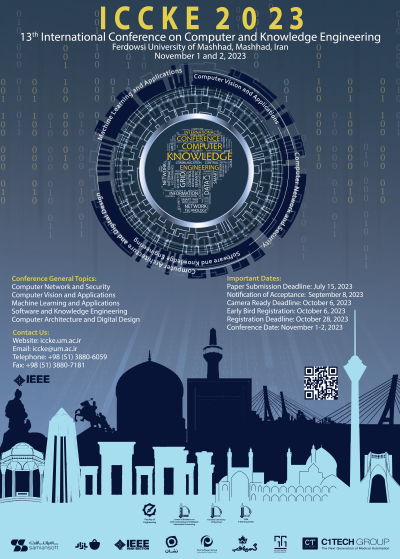0% Complete

Authors :
Keywords :
Abstract :
List of archived papers
Arash Nasr Esfahani - Hamed Hosseini - Mehdi Tale Masouleh - Ahmad Kalhor - Hedieh Sajedi
Zhaleh Manbari - Chiman Salavati - Fardin AkhlaghianTab - Barzan Saeedpoor - Himan Delbina - Mahmud Abdulla Mohammad
Milad Sattari Maleki - Seyedeh Niusha Motevallian - Faezehsadat Hosseini - Mohammad Sabokrou - Hamidreza Soltanalizadeh Maleki
Abolfazl Mohajeri Khorasani - Sahar Ghassabi - Behshid Behkamal - Mostafa Milani
Siavash Zaravashan - Sajjad Torabi - Hesam Zaravashan
Hoda Shad - Mona Zamiri - Tahereh Bahreini - Reza Monsefi - Ghoshe Abed Hodtani
Anita Ghandehari - Soheil Shirvani - Hadi Moradi
Aliyu Sabo - Theophilus Ebuka Odoh - Samuel Habu - Hossein Shahinzadeh - Farshad Ebrahimi
Fatemeh Salmani - Hamed Vahdat-Nejad - Hamideh Hajiabadi
Fatemeh Zahra Arshia - Saeedeh Sadat Sadidpour



